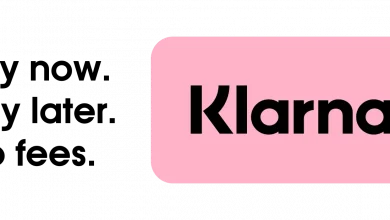Is Equity Release a Good Idea to Pay Off Debt

For many people, their home is their biggest asset. And, as we all know, debt can be a huge burden.
So it’s no wonder that some people are considering using equity release to pay off their debt. But is this really a good idea? Let’s take a look at the pros and cons of equity release.
Define equity release
Equity release is a financial product that enables homeowners to take advantage of their accumulated home equity. It’s a popular retirement planning vehicle that can help people supplement their retirement income by tapping the cash value of the equity they have built in their homes over time. Essentially it turns the value of your home into money you can use for whatever purpose you want, whether it be bolstering your pension income or helping fund a child’s education expenses. For those approaching or already in retirement, equity release typically offers tax-free funds, and access to funds beyond savings limits and provides an opportunity to leave more inheritance for the next generations.
How does it work/ how can you use it to pay off debt
Paying off debt can feel overwhelming, but using a debt payoff strategy can simplify the process and help you get out of debt. It all starts with determining how much total debt you have and separating it into categories by types such as credit cards, student loans, car loans, or mortgages. From there you can decide on which strategy is best for your situation – the snowball or avalanche method. With the snowball method, you pay off the lowest balances from smallest to largest. With the avalanche method, you tackle your highest interest-rate debts first. Whichever approach works best for you, remember that your journey will be easier if you put steady effort into paying off your debts.
Are there any risks associated with equity release schemes
Equity release schemes can seem like a great option for people looking to unlock some of the value in their homes, but it’s important to know that there are some potential risks. Not all equity release schemes are the same and different providers have different terms and conditions, so it’s essential to make sure that you consider all the options and understand what you’re signing up for. With larger loans comes greater risks, so it may be worth getting independent financial advice to make sure that you’re making an educated decision about the best option for your individual circumstances. It’s also worth noting that with rising house prices if any additional lending is secured against your property, you may be restricted from moving or downsizing your home. It’s essential to weigh up these factors when deciding whether or not an equity release scheme is right for you.
What are some alternatives to using equity release to pay off debt?
If you’re considering equity release as a way to pay off debt, it’s important to also look into alternative options. With careful budgeting and planning, it may be possible for you to pay off your debt without releasing equity from your property, although this can be difficult. You could consider taking out a secured loan or an unsecured loan if you are unable to increase your income.
You could raise capital by selling valuable items that you own or request credit counselling in order to help you manage your money better. Depending on the type of debt, there could also be debt settlement schemes available to negotiate lower repayments with creditors or freeze interest charges.
It is always wise to explore multiple avenues and carefully weigh all of the pros and cons before making any decisions so it’s worth researching any option available to get out of debt while keeping your assets intact.
Is equity release a good idea for everyone or are there certain situations where it wouldn’t be recommended
Equity release could be a lucrative way to boost your finances in retirement, but it’s important to note that it’s not necessarily the best idea for everyone. While it doesn’t involve any regular payments while you are still alive, equity release will reduce the value of your estate and as such is only recommended if you won’t need or require it after you pass away.
It can also come with costly extra charges, so do extensive research and consider whether this option is right for you before deciding. Ultimately, if played right, equity release could be a great choice for additional income in retirement provided you thoroughly assess its suitability for your circumstances.
Summarize the pros and cons of using equity release to pay off debt
Equity release schemes provide an appealing way for individuals to pay off their debts – instead of taking out a loan from a bank, you can use your own home as a means of securing the money. Unfortunately, this approach does have its drawbacks; for one, it is only recommended if you are over 55 years of age – younger people rarely qualify for equity release schemes.
Additionally, the amount you’re able to borrow is usually significantly lower than what a loan might offer. Furthermore, it is possible that using equity release could reduce your pension payments due to taxation implications and could even leave you without accommodation as some equity release arrangements require full repayment upon death.
Despite this, these schemes often come with low-interest rates and no fixed payment terms, allowing individuals to pay back the debt on their own terms.
Conclusion
In conclusion, equity release is a way to access the money tied up in your property without having to sell it. It can be an effective way to pay off debt, but there are also some risks associated with this type of scheme. If you’re considering using equity release to pay off debt, it’s important that you understand both the pros and cons before making a decision.




